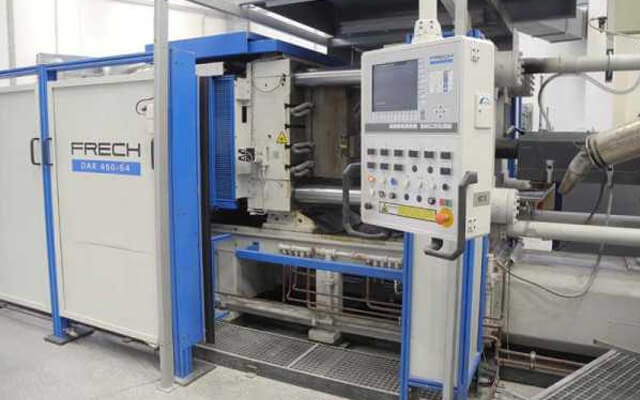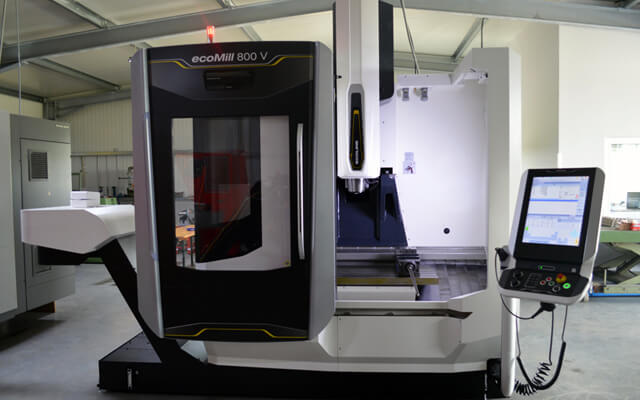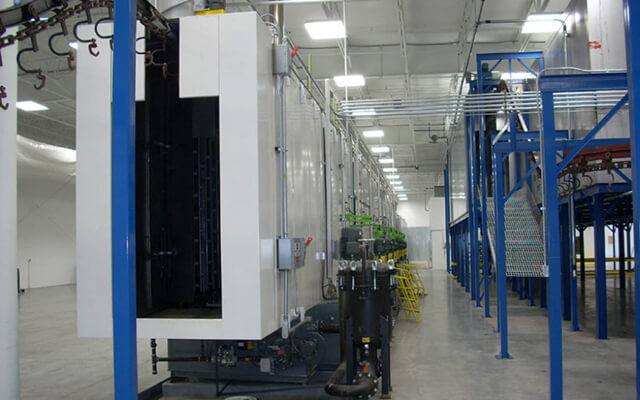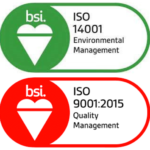Hallam Castings ISO 9001 Quality Framework
All Hallam Castings manufacturing and administrative processes operate within the ISO 9001:2015 framework. Hallam’s 9001 certificate is awarded and audited annually by the British Standards Institute.
Hallam Castings employs a dedicated Quality and Health and Safety Manager who attends Hallam’s daily production briefings and chairs the weekly Quality Group meetings. The post holder is also a key member of the Senior Management Team.
Hallam Castings has recently acheived ISO 9001:2015 and is discussing with BSI a move to ISO 13485, allowing access to medical equipment markets globally.
Ppk and Cpk analysis (typically) and other statistical process control methods under Six Sigma are applied to Quality acceptance testing for new components from both new and transferred tooling as well as in ongoing volume manufacture.




Aluminium Die Castings Machinery and Equipment
Hallam Castings manufacturing capability includes sand, gravity and high pressure die casting in aluminium and zinc alloys; CNC machining; fully automated powder coating; assembly of manufactured and outsourced components to create complete products and sub-assemblies.
Cold chamber high pressure aluminium die casting is a method based on the process of injecting molten aluminium under pressures of up to 20,000 psi into a hardened steel die or mould held together under a clamping force of up to 2000 tonnes on a complex automated hydraulic aluminium casting machine which forms the shape of the component or product required. The aluminium die casting machine opens the die when the molten metal has set, and the die casting parts are ejected. The cycle is repeated quickly, so that many hundreds of cast parts can be made each day.
High pressure aluminium die casting tools can be made to achieve tolerances of +/- 0.1mm and wall thicknesses of only 1.5mm with fine surface finishes withstanding extreme pressure and heat. This type of aluminium castings tool is designed to reproduce parts in high volumes with fast cycle times at an economical unit price.
Without careful mould design, high pressure die casting parts are more susceptible to porosity than sand or gravity processes. The die mould has one open end where the metal is injected under pressure; when the two halves of the die are closed the mould cavity is still full of air. In the aluminium die castings process, the majority of the air has to be displaced from the die as the molten metal is injected. This can be achieved by placing vents at strategic places within the die to release the air.
Hallam Castings uses dynamic CAD models to design the tool to ensure that the air is not trapped in the mould. Hallam’s knowledge of the causes of porosity has been enhanced by research undertaken in this area by the University of Sheffield Advanced Manufacturing Research Centre at Hallam’s premises.
Hallam Castings uses German Frech and Wotan high pressure die casting machinery, and has a total capacity over two shifts of more than 30,000 diecasting hours per year. The Frech machines are linked on-line to Germany for fault finding and efficiency monitoring.
CNC machinery is supplied and maintained by DMG MORI. The most recent addition to the machining portfolio is a new DMG MORI CMX 800 V vertical machining centre. Hallam Castings uses CAMWORKS to interface Solidworks Professional CAD models with its CNC equipment.
The UK company Haviland designed and constructed Hallam’s powder coating plant specifically for the surface finishing of aluminium components and products. The plant included a five stage pre-treatment unit and Saracen gas fired recirculating conveyerised oven. The aluminium castings plant can accommodate components weighing up to 10 kg and one metre in height or diameter.
Process methods – Lean Six Sigma
“Lean Six Sigma is a business approach to continual improvement which focuses on stripping out areas of waste from processes and minimizing product reduction. Lean refers to maximizing customer value and minimizing waste; creating more value for customers with less wasted resources. Six Sigma is the on-going effort to continually reduce process and product variation through a defined project approach” – British Standards Institute
Six Sigma is a disciplined, data-driven approach and methodology for eliminating defects (driving toward six standard deviations between the mean and the nearest specification limit) in a manufacturing (or service) process.
The fundamental objective of the Six Sigma methodology is the implementation of a measurement-based strategy that focuses on process improvement and variation reduction through the application of Six Sigma improvement projects.
The Six Sigma DMAIC process (define, measure, analyze, improve, control) is an improvement system for existing processes looking for incremental improvement.
The Six Sigma DMADV process (define, measure, analyze, design, verify) is an improvement system used to develop new processes or products at Six Sigma quality levels.
Hallam Castings adopts Lean Six Sigma principles in all its manufacturing and administrative operations and embeds these alongside Quality and Health and Safety principles and rules in creating a fully integrated operational culture. Hallam Castings recognises that quality control, quality improvement, safety and process improvement are inextricably linked objectives.


